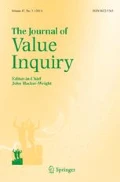Conclusion
The right to be secure from torture, a right that encompasses moral as well as legal strictures against the practice, is supported by increasingly stringent human rights instruments. In this essay, I have discussed the principal instruments and their place in the anti-torture field considered broadly. The phenomenon of these international instruments foreshadows an ever-widening range of legal initiatives against torture, and is emblematic of the increasing importance attached to respect for human life and human dignity. The diversity of international treaties providing against torture such as, for example, The Convention on the Prevention and Punishment of the Crime of Genocide (1948), The Supplementary Convention on the Abolition of Slavery (1956), The International Convention on the Elimination of All Forms of Racial Discrimination (1965), and The International Convention on the Suppression and Punishment of the Crime of Apartheid (1973), indicates the interconnectedness of a wide range of human rights issues.
The boundaries that have been drawn around the violation constituted by torture are clearer at present than are those bounding many other rights. Rights commonly categorized as of an economic nature - the right to food and to development, for example - are undergoing processes of definition and implementation. One challenge of this paper is to generate procedures presently attached to such specific human rights violations as torture to rights with less clear parameters. In this way, the growing effectiveness of procedures against torture can serve in the long term to strengthen the bases of international human rights law while in the short term helping to expand the armory of procedures for the protection of less clearly-defined, rights. International human rights law offers a practical tool towards eliminating torture from states' instruments for governing and provides a model for the development of procedures in other categories of rights, while bringing universally declared moral aspirations and legal authority into closer alignment.
Similar content being viewed by others
Author information
Authors and Affiliations
Rights and permissions
About this article
Cite this article
Maran, R. The juncture of law and morality in prohibitions against torture. J Value Inquiry 24, 285–300 (1990). https://doi.org/10.1007/BF00141407
Issue Date:
DOI: https://doi.org/10.1007/BF00141407



